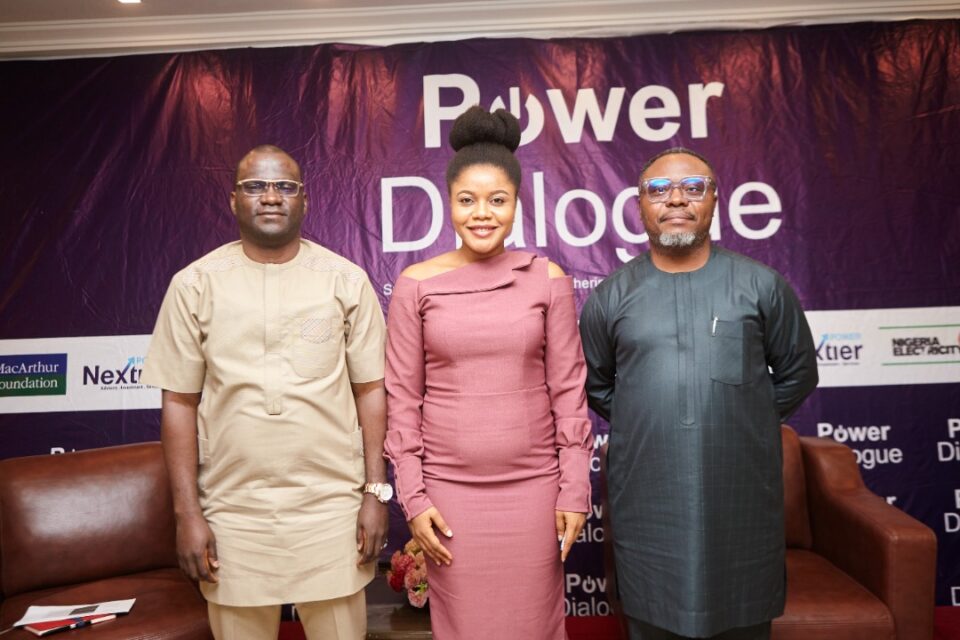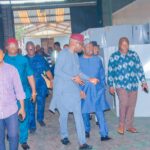By Chesa Chesa
Industry experts in the Nigerian power sector have attributed inconsistencies associated with the hurried privatisation of the GenCos and DisCos in 2013 to the challenges still bedeviling the sector, with resultant epileptic electricity supply nationwide.
The researchers, under the aegis of The Electricity Hub (TEH), a subsidiary of the Nextier Group, arrived at this conclusion during the 73rd Power Dialogue to discuss the implications of the recent restructuring of the DisCos on service delivery to electricity consumers in Nigeria.
They noted that the privatisation, which saw the establishment of six Generation Companies (GenCos) and 11 Distribution Companies (DisCos), was expected to boost the country’s meagre state of power supply.
They also noted that though some level of progress has been recorded, the assets are yet to attain optimal levels of service delivery. Hence, the Nigerian economy and the populace still suffer from the inadequate electricity supply.
At the panel session during the power dialogue, one of the key participant, Odion Omonfoman, said the challenge that resulted in the takeover of certain DisCos, especially the “Aggregate Technical, Commercial and Collection (ATC&C) losses incepted by investors while acquiring distribution assets were significantly less than the actual value loss”.
He noted that these fundamental flaws in the privatisation process have begun affecting the entire value chain.
According to him, “the core investors were only able to raise the acquisition financing, they have been unable to improve power supply; hence the poor performance of some distribution companies.” Mr Omonfoman noted that the federal government in responding to the challenges in the distribution sector began several interventions.
Some of the interventions spearheaded by the Central Bank of Nigeria (CBN) and the Power Sector Recovery Programme (PSRP) have injected over three trillion nairas to stabilise the energy sector.
Another panelist, Olushola Ajala also argued that the government and DisCos investors contributed fairly to the challenges that led to the restructuring.
Butressing his argument, he noted that whereas the government has been working to tackle its fault in the privatisation, “the timing is wrong.”
According to him, both parties have difficulties servicing their loans because, notwithstanding the commercial losses brought back into the tariff structure, the inaccuracy had already accrued liabilities for DisCos.
Commenting on the impact of the restructuring on electricity supply to consumers, Omonfoman noted that electricity consumers would not face dramatic changes from banks taking over the shares because the process does not cheer in new investments.
“The banks are not taking over to inject capital into the business. Rather, they are taking over to recover what they had given to the core investors,” he noted.
He also highlighted that projects such as the PSRP and other targeted interventions create sustainable finance to stabilise the sector, adding that these interventions, in addition to distribution companies’ managerial investments, will be the basis for service improvement to consumers.
Ajala stressed that service delivery to consumers relies not only on distribution capacity alone but also on the transmission network, gas supply, and the maintenance of plants by generation companies.
He opined that the partial activation of contracts and service-based tariffs had increased the level of electricity supply to consumers.
“Indeed, the takeover of some distribution companies was foretold; it was inevitable, given the nature and manner of the privatisation transactions,” he stressed.
The panellists unanimously agreed that restructuring and other significant interventions in the sector, such as the contract agreements, were a step in the right direction.
Although to ensure a steady supply of power, the regulator must ensure that signed pacts are followed thoroughly and new investments are made in the distribution sector to deliver operational efficiency.
It will be recalled that the Power Dialogue falls under a monthly public discourse series aimed at sharing information and pragmatic ideas, advocate policy positions and highlight investment opportunities in the Nigerian power sector. It is coordinated by The Electricity Hub, a media enterprise of The Nextier Group, a non profit organisation.



